A decade before Mauricio Macri decided to enter politics in 1993, Horacio Rodríguez Larreta, had founded the Sophia group, the hotbed from which María Eugenia Vidal, Carolina Stanley and Esteban Bullrich emerged.
Since then, the 56-year-old has headed the ANSES social security administration for Carlos Menem and the PAMI healthcare scheme for Fernando de la Rúa. He served as Macri’s Cabinet chief in the City government, before eventually succeeding him in office.
Horacio Rodríguez Larreta Senior opposed his son placing his knowledge and organisational skills at the service of Macri. With a presidential election due next year, the current mayor of Buenos Aires City is expected to throw his hat into the ring.
Here are his thoughts on a host of subjects.
IMF
Why weren’t you the first to support the government efforts to reach an agreement with the International Monetary Fund, knowing that any improvement gained for Argentina would be better than the debt contracted by the Macri administration, plus the prestige and fame you enjoy as a conciliator? And what conditions would that agreement require to have the support of the opposition?
I’ll be going to next Tuesday’s meeting [Editor’s note: Interview conducted before meeting was subsequently postponed], as has been coordinated. Governors from Juntos por el Cambio will be participating along with our Congress caucus leaders. I’m positively inclined. An agreement is needed but one which makes Argentina grow and create jobs, not just any old agreement.
As for conditions, firstly, the numbers on the table should be realistic. That’s very important, that didn’t happen with the [2022] Budget. Secondly, it should be part of a plan since this cannot be solved by any single measure. The IMF agreement is one part, and possibly not even the most important part, of a growth plan for Argentina. What is not to be seen today is how Argentina returns to growth, whether there will be investment and how jobs are to be created. The great objective is to create jobs. The IMF agreement is just one chapter.
We can imagine the government presenting optimistic numbers as to an agreement.
There are such things as realistic optimism and unrealistic optimism.
You come from the private sector, so you will know that nobody requesting a loan from the bank will present a project with pessimistic numbers, only to be turned down. Wouldn’t it be logical that even if the fundamentals were unduly optimistic, it should be the IMF objecting and not the opposition?
For an agreement you must have optimism. That’s natural but you also need realism. If there is no confidence, if the numbers are not credible, there will not be any agreement either. We must seek an agreement being reached. Rather than optimistic or pessimistic, there must be a serious position. It’s not just all about how you return the loan to the IMF but also how that fits into a development plan. We must go from the general to the particular. The important thing is having a long-term plan for the country to return to growth and create jobs. Argentina’s capacity to pay must be deduced from that standpoint. It’s not the same for Argentina to pay if and when the country has sustained growth as if not.
The future is unpredictable by definition, as you know. Nobody can tell what commodity prices will be in 10 years’ time.
Within 10 years is unpredictable, within eight, a bit less and within five, a bit less still. That does not mean that we should not have a long-term plan, including alternative scenarios after a certain period. Today we don’t have that.
[Jujuy Province Governor] Gerardo Morales has said that there are hawks in Juntos por el Cambio who would prefer “everything to blow up,” seeking the destabilisation and the failure of the government more than contributing to solving the grave problems affecting Argentina. Might not this be a very dangerous policy, even for a Juntos por el Cambio government which might possibly take office after that crisis?
There is a vocation throughout Juntos por el Cambio to collaborate. There are different positions, as in any party or coalition, all the more so if it can aspire to becoming a majority. It is heterogeneous, by definition.
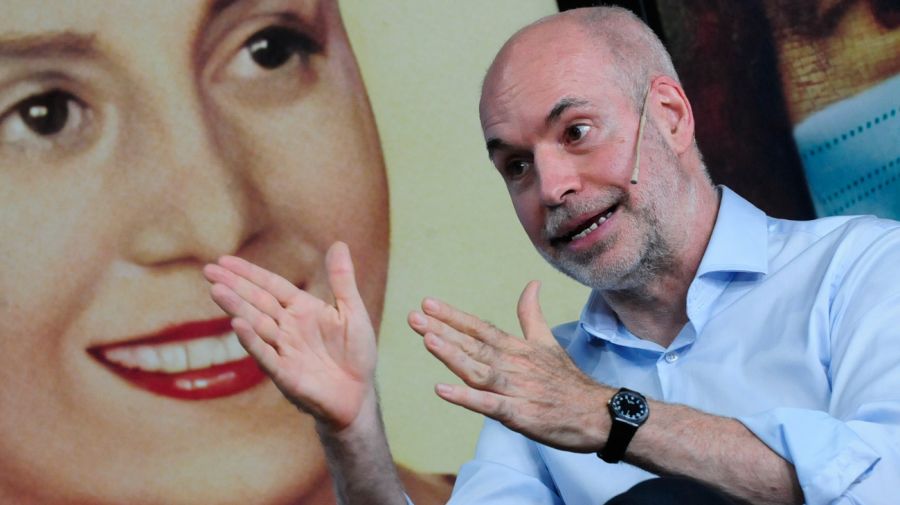
BUDGET
How do you explain that in the Chamber of Deputies, Juntos por el Cambio voted against the National Budget, arguing that its parameters were fudged and had nothing to do with reality, while almost simultaneously the City Legislature approved the annual Budget, obviously with the votes of Juntos por el Cambio legislators, using the same parameters?
Kirchnerism never approved the Budget of the City of Buenos Aires, whose parameters are the same as theirs because part of the revenue comes from the national government. I cannot use a different inflation figure because then the numbers would not balance out. The big difference is that if at national level inflation outruns the Budget figure, the Executive Branch (i.e. the President) has full powers to assign those additional funds as he pleases. In the City each additional peso raised by greater inflation must return to the City Legislature for approval so the issue of additional funds is far less serious at that level. That’s good if I have no authority to distribute excess funds.
Comparing the real numbers of 2021 with the National Budget approved at the end of 2020, the parameters improved, save for inflation – the growth was higher while the fiscal deficit and the money printed were less. It was not all that inconsistent, except for inflation.
The inflation figure is inconsistent and the serious thing about that is that it generates funds which pass to presidential disposal without any control from Congress. That does not happen in the City.
With your Harvard studies, you will know that nothing is monocausal.
Nothing and even less so when the problems are complex.
So assuming that inflation is a multicausal phenomenon with expectations as one of its causes, placing in the Budget a lower inflation figure to the previous year could be, rather than fiddling the books, a public policy aspiration, given the weight assigned to performance by the government within the Budget. Mauricio Macri’s ministers did the same with their “inflation targeting,” placing lower inflation as an objective.
But if that number falls short, the President has discretionary powers. If he did not have that discretion, it would be less serious. If it worked like in the City, this discussion would be different.
So you can understand why a minister would place a lower figure for inflation but you do not countenance the funds afterwards being distributed in an arbitrary fashion.
If it is not realistic, it will not trigger expectations. I understand the vocation to generate positive expectations but that also depends on their credibility. If it is impossible, no expectation has any point. We take our projections from the private sector, not our numbers. There is a very big difference. There are lines in the Budget which speak of funding from international organisms which does not exist. Inflation is not the only inconsistency.
Referring to inflation: they say that the IMF is analysing the possibility of accepting a plan against inflation with a price-wage agreement whereby the increases of both are progressively lowered.
Inflation is multicausal. It’s not just about a price-wage agreement, otherwise it would be very easy.
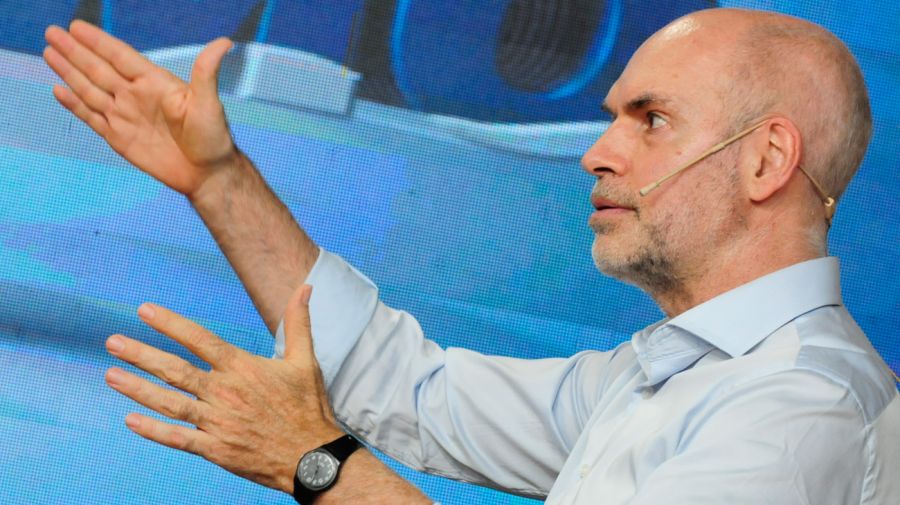
ELECTORAL STRATEGY
What type of alliance should Juntos por el Cambio seek for 2023? Something more geared to centre-right and rightist sectors or to progressives and socialists?
We should take the model from how we have kept growing. In these midterm elections we took steps towards that vocation for openness which we proclaim. We added Ricardo López Murphy in the Capital and independents like Facundo Manes or Carolina Losada elsewhere. In various provinces we had candidates more Peronist in origin like Claudio Poggi in San Luis, Marcelo Orrego in San Juan and Germán Alfaro in Tucumán. We maintained our agreement with Juan Carlos Romero and Alfredo Olmedo in Salta while also adding Margarita Stolbizer. We have to keep growing and adding on. Argentina needs a broader majority.
The “moderates” of Juntos por el Cambio are said to want a broader alliance for 2023 to “isolate” Kirchnerism. What are Horacio Rodríguez Larreta’s limits? With [Sergio] Massa or without him? Is it better to have a centrist alliance or to integrate the libertarians of Javier Milei and José Luis Espert?
Massa is part of the government. In the case of the libertarians, in 2019 we had an agreement with Espert in the Capital. I have a good relationship with him. I respect him and we reached an agreement – we have already worked together. There are lesser-known leaders, mayoral candidates, in some provinces. We have to build a really broad governing coalition. That does not mean we have to reach government with a landslide. Sometimes that is not realistic. The important thing is to govern and transform Argentina, carrying out the changes needed and that requires a broader coalition. That can come from an electoral agreement but it can also grow afterwards.
Some perceive you shifting towards more hardline positions, pressured by [Mauricio] Macri’s wing of PRO and the success of the libertarians. Is your project also to head the “hawks” or will you at some time seek to recover the moderate and centre-right profile which you cultivated?
I stand by my convictions. I was very firm when questioning the government for staging a march to make the Supreme Court resign or when they freed convicts from prison or wanted to go ahead with their judicial reform or the expropriation of Vicentin. Ditto with price controls. I was also very firm over keeping City classrooms open. I defend the vocation for dialogue just as firmly. If we do not reach a broad consensus, we will not be moving ahead. I do not fall for simplifications or stereotypes. We need a broad majority. It’s not about being part of a splinter. We have to form a broad consensus within our team and then grow beyond that.
Are you thinking about a presidential ticket? Could your running-mate be Mendoza Governor Rodolfo Suárez [whose term ends in 2023] or Santa Fe Senator Carolina Losada, who has been something of a revelation?
I’m not thinking of any candidacy, neither mine nor anybody’s. There’s still a long way to go. I have an enormous responsibility within the City taking care of people with Covid-19. We’re testing 50,000 people daily and vaccinating 35,000, an enormous operation. That’s my focus.
But we’re interviewing a presidential candidate here.
(Laughs) OK, but I’m City Mayor. I never launched any candidacy nor raised the subject.
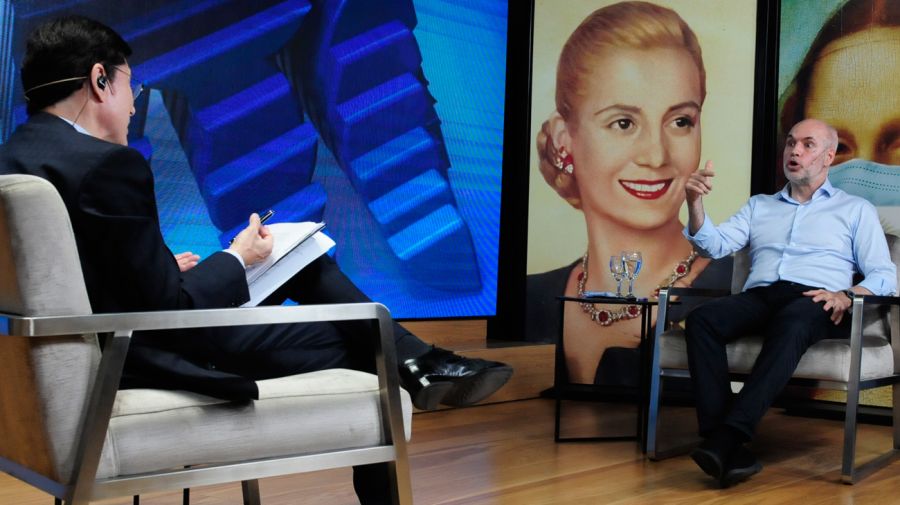
LEADERSHIP
Why is that, after having imposed your candidates and winning, the feeling is that between the PASO primaries and the November elections, your leadership seems to have weakened without being able to consolidate yourself definitely as the opposition chief?
I’m not seeking absolute leadership. The absolute leadership of Juntos por el Cambio belongs to its executive board. That’s proven to be a very successful model. This is the first time since the return to democracy that the opposition has stayed united against a Peronist and now Kirchnerite government. That is also owed to its style of leadership. Furthermore, we won the election. Six months beforehand very few believed that to be possible. With that model of leadership we managed to keep the opposition united, win the election and halt judicial and legal reforms and many other initiatives harmful to the country.
Can the opposition coalition win the elections and return to government without a clear leadership?
Of course. There are many relevant figures in Juntos por el Cambio, some more national in profile, others in the provinces. We won in many provinces, in the biggest.
Isn’t it necessary to have a leader?
No and even less so when we have a mechanism for defining candidacies, namely the PASO primaries. We have an institutional mechanism, ground rules. That helps a lot.
Don’t you feel at times that there are more differences between you and the Juntos por el Cambio hawks than between you and the moderate wing of the ruling coalition?
I find it hard to detect that moderate wing within the ruling coalition. Their decisions lack moderation or search for consensus. Every time they speak, they question, accuse and blame the opposition.
Don’t you see any differences between Cristina Kirchner, traditional Peronism and Alberto Fernández?
For some time those who run the government – the President, the Vice-President, La Cámpora – have shown no willingness to dialogue. I showed every goodwill towards dialogue and one day I found out through the media that they wanted to shut down the Buenos Aires City schools on me. That announcement was made by the president.
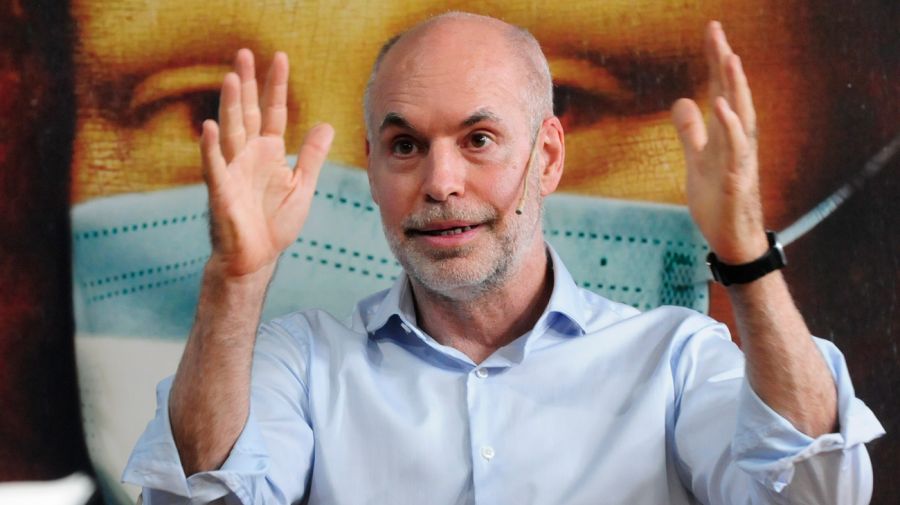
2023: GOVERNMENT AND ECONOMY
There are almost two years to go for (the elections in) 2023. You have gone criticising the lack of an economic plan on the part of the government. Do you have a plan?
That would be impossible because an economic plan depends on its starting-point. It’s not the same economic plan if inflation is 50 percent, 20 percent or 100 percent. It’s not the same if Argentina is growing or contracting. It would not be real without knowing what kind of country we’re going to have in 2023. I studied economics so I have plenty of affinity with these issues.
You could always simulate different scenarios with different starting-points.
We have to open up Argentina so that we double the exports at the very least. We have the potential for that. Argentina produces food to which value must be added, not just exporting raw materials.
As Pablo Gerchunoff put it, a popular exporting alliance.
Exactly. For example, thanks to the drive of Gerardo Morales, Argentina and Jujuy are producing lithium but we must export batteries and one day electric cars with the lithium of the Argentine north. We need an integral plan to tackle inflation. As you said, inflation is multicausal. You need to have a road map to narrow the deficit. It’s not realistic to spend more than we have. State spending needs to be made far more efficient. I believe in a smart and present state but there is so much waste.
What approach do you have for confronting inflation? Is Federico Sturzenegger’s inflation-targeting enough?
I don’t know if it is revolutionary but it is heterodox, including price-wage agreements and a clear path towards deficit reduction. When we print money, that sooner or later ends up carrying an inflationary impact. Expectations are also an issue. A credible government with a plan is required. Government credibility is also a factor in inflation.
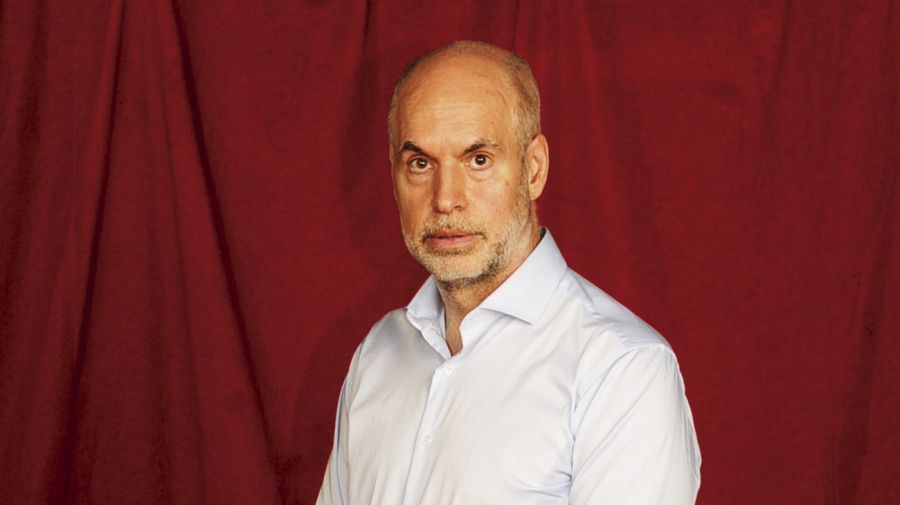
COURAGE
Politicians are criticised for lacking the imagination to instrument new solutions to the problems we’ve always had. Does that poor creativity result from the fear of rejection in this “cancellation era.” It is said of you that you have no vocation to be disruptive, that you try to bring people together, not drive them apart. What is your relationship with courage and how would you rate it as a virtue?
You are posing a contradiction which I do not see. You have to bring people together and then be very disruptive from that unity. They said that we were crazy to split Avenida 9 de Julio in two to install the Metrobus, that transferring the seat of government to Parque Patricios was insane, that it was impossible to put an end to flooding, that we would never finish the Paseo del Bajo underpass because it had been announced for the last 70 years and that the police could not be transferred but today the city is safer.
We have done some daring stuff in the City of Buenos Aires. They considered me insane for wanting overhead trains. They wondered who would want to use a bicycle in Buenos Aires. Those were the far-reaching measures which occurred to me when administering the City of Buenos Aires and they are not small fry.
Did you see that audacity in Macri’s national government?
In some things, yes. For example, the level of energy displayed by Mauricio in reconnecting Argentina to the world. Who would have said that we would have all the world leaders here at the G20 [summit]?
Do you want to be the person who transforms Argentina or is being president enough for you?
I’ll repeat once more, this is not the time for candidacies.
The last time I interviewed you, more than four years ago, in November 2017, was the crest of the wave for Cambiemos, having won the [midterm] elections with the December disturbances still lying ahead. That interview was headlined: “Vidal and I are the same as Macri.” Do you still think the same way today?
We are part of the same Juntos por el Cambio leadership and we have worked together for 20 years.
In what way do you differ?
In temperament and personality. I’m a great believer in the need for the broadest consensus as the only way out.
So would you be a person more predisposed to consensus than Macri?
The context was different. His government started out very much in the minority in Congress. ]Consensus] is hard to construct.
One might think that in those circumstances more consensus would be necessary.
But he had less weight to do it.
Are you less orthodox in economícs?
I’m very much into the desarrollista school of development. But when you ask Mauricio who was the best president in the last century, he also says Arturo Frondizi [the 1958-62 president who founded desarrollismo]. In that sense we have a common vision. I believe hugely in building teams. I’ve approached people throughout the years and keep adding them. We have a super-committed team in the City which is carrying forward a governance which makes me proud.
Do you believe that Macri will not be running in 2023?
He said so himself so why wouldn’t I believe him? He can collaborate, form a part. He said so, those are not my words. I understand that he has also said so in public.
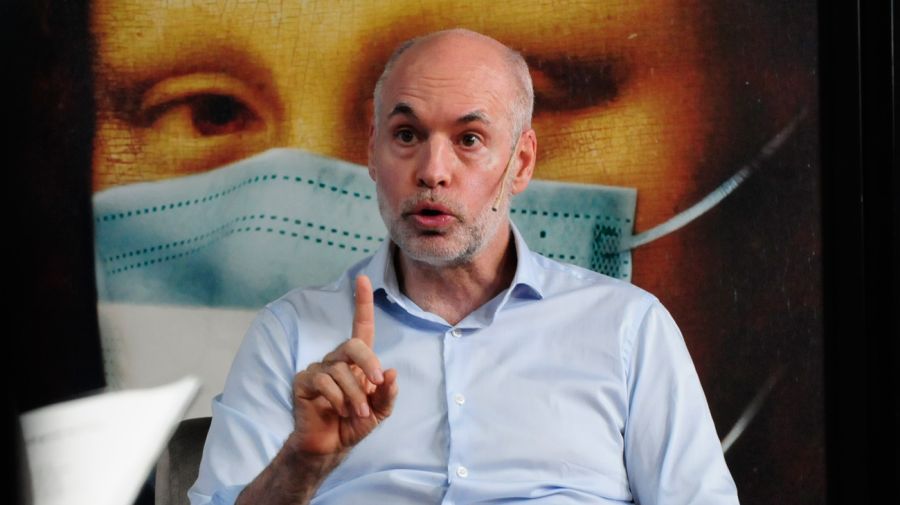
CITY
I’m now coming to your comfort zone, municipal affairs.
That’s the most important part of the interview. The City is my responsibility.
Regarding the question of the state land sold to make upmarket neighbourhoods, how many neighbourhoods did you urbanise in your mayoralty for low-income groups?
Never has so much social housing been built in the City of Buenos Aires as in these years. One project in conjunction with the national government, with Procrear, behind Huracán stadium, has almost 2,000 housing units. A bit further away, on Avenida Sáenz (also a Procrear project), the City built 700 housing units. In the Barrio 31 neighbourhood 1,050 families have already moved [into social housing].
Around 5,000 people or 10 percent of the population of Barrio 31.
Never has so much social housing been built. In Rodrigo Bueno, at the end of Puerto Madero, there is a completely new neighbourhood of social housing, as there is in Fraga, Chacarita and on the Avenida Triunvirato. An unprecedented construction of social housing while all the bank credits given via the Primera Casa plans with the aid of rental are equally unprecedented. Those are concrete cases with names and surnames. Many of them, much of Barrio 31 or Fraga, were built thanks to the sale of state land which had become disused wasteland. Thanks to those sales, a good chunk of Paseo del Bajo, the most important infrastructural work in the City in decades, was financed, as was the construction of social housing in Villa 20 and Escalada y Cruz.
What would you say to those who point out that City education spending has gone down from a peak of 27 percent of the budget to the current 17 percent?
I would tell them they were getting their sums wrong. If you add to the City budget the subway subsidies and an entire police force, each spending item is lowered proportionally if the denominator increases – that’s mathematics. Anybody presenting it otherwise is acting in very bad faith. That is ignoring that the City has added many functions requiring greater spending.
So it’s a smaller percentage over a greater total.
Obviously. The Budget has now increased in absolute terms, even when measured against inflation. Thanks to that, we’ve built 54 schools in the City, the biggest schools we have. The biggest school in the City is right behind the Comodoro Py courthouse and Retiro station in Barrio 31. Then follow the Polo Educativo school in Mataderos, and the María Elena Walsh school, also in Barrio 31. We’ve completed the educational centres in Villa 20.
How did you feel when you lost in Barrio 31?
I work for the whole City and continue working with the same goodwill and energy. The whole project of transformation has continued all the same, over and above electoral results. I take pride in having succeeded in moving everybody under the highway, who lived in worse conditions than in Barrio 31. We relocated them all, as well as 70 to 80 percent of the people who live in the worst conditions in all the City, those living near the Riachuelo. Those people live much better today..
Argentina has a dual reality, one might say. Digital unicorns and world-class entrepreneurs but at the same time an alarming growth in school dropouts and worse results in tests. What educational social systems should Argentina have to take advantage of its opportunities in human resources?
I’m so proud of what we are doing in the City. The incorporation of technology into City schools is phenomenal. All the schools have broadband infrastructure, all the children have access to a computer, classes of robot technology and programming. All the children between first and fifth grades are learning English and some end up with 12 years of English, key to the access to the knowledge economy and technology. We must continue improving beyond any doubt – for example, with the project of the secondary school of the future. Those are things which take time and must be sustained in time.
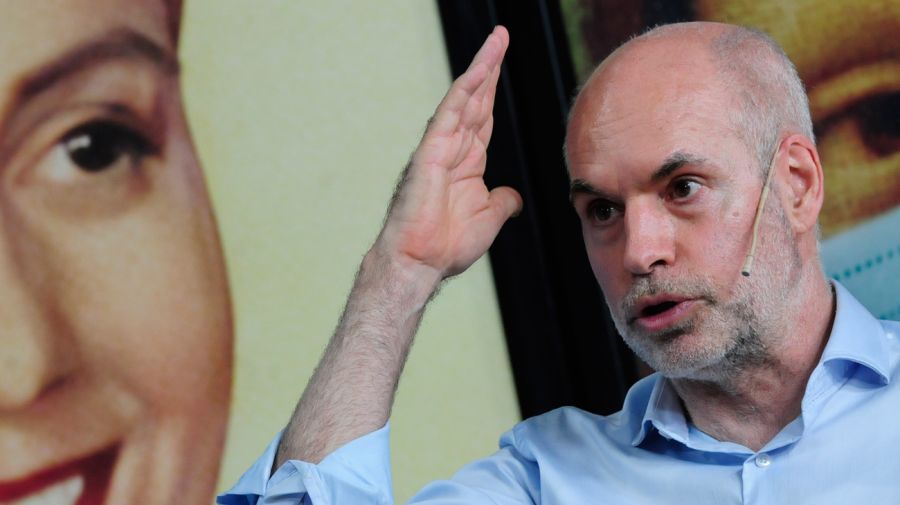
PERSONAL
In the past you were pretty uncomfortable when speaking in public in front of many people. How have you progressed in mass communications?
I believe in effort. In life effort, consistency and method are everything. It’s quite true that I was never an eloquent orator by nature but I practised and took classes accordingly. You can always go learning things in life. Communication is an important part of my role and I’ve dedicated a lot of time to improving it.
Do you feel more comfortable?
Yes. I don’t feel that I’m all that good but I feel more comfortable. I have to speak all the time in public spaces, big or small, open or closed.
Is there any issue I haven’t yet asked which you’d wish to add?
Rather than any issue in particular, a vision. I’d like to ratify my optimism for Argentina. We have a country with so many possibilities. We’ve had problems with our governments and politicians and beyond them the whole ruling class for many years. We’re the country who most prospered in the world between 1880 and 1930. From that moment we entered into a long period of ups and downs. In most countries in the world, at least the developed ones, when they change the president, nothing else changes. Here a presidential change marks the arrival of a founding figure who wants to start all over again. That’s not the way. We can discuss the tools and, as I told you, the economic plan will depend on its starting-point. That’s not the most important thing. More important is for the plan which we carry forward to have broad support and sustained consensus over time. It’s not a question of enjoying support when launched and then two months later everybody is saying no. To be sustained in time requires a broader coalition and power-sharing to have more power to sustain the vision over the long term. It means negotiating but in the good sense of negotiating ideas. Often when seeking support for, say, 10 ideas, you find agreement with eight but not with the other two. That’s part of the interchange and that is the challenge. I’m convinced that it can be done. My vocation is to be part of the team carrying out that transformation.
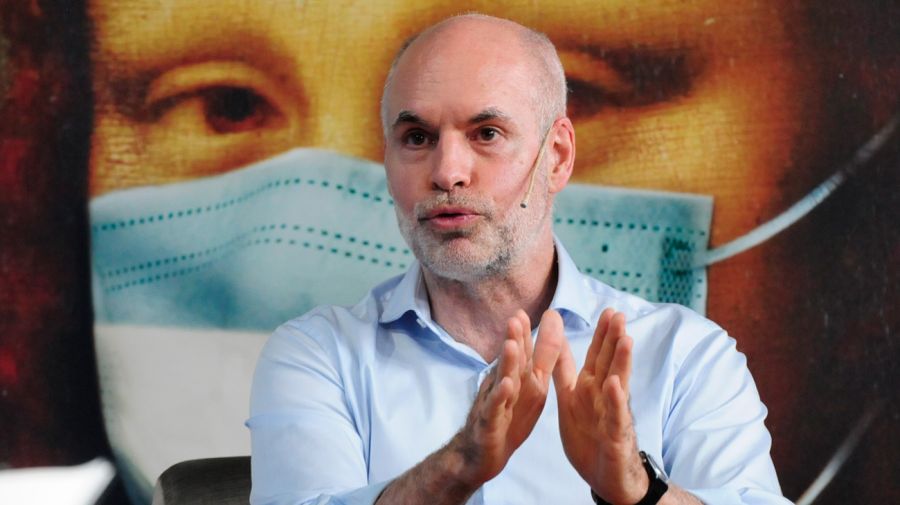







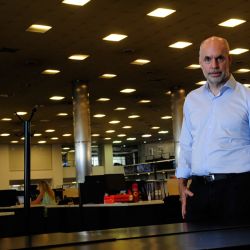



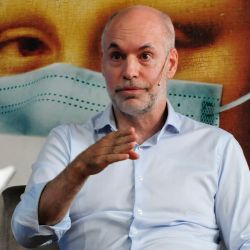





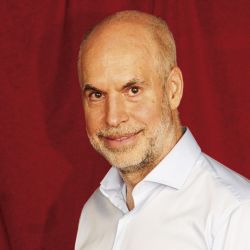
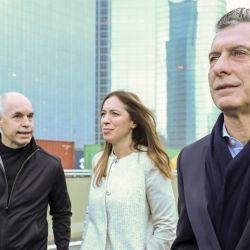
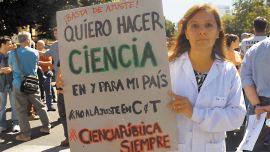













Comments